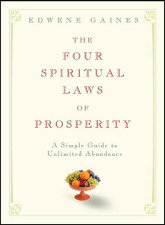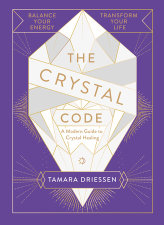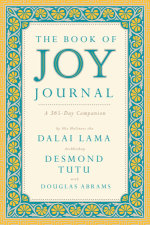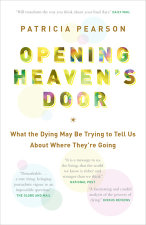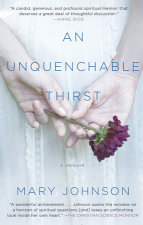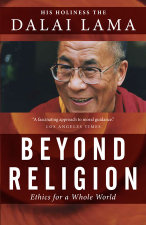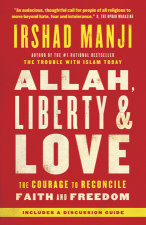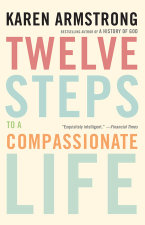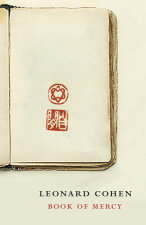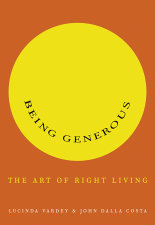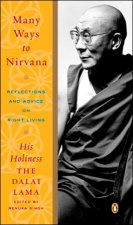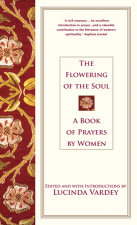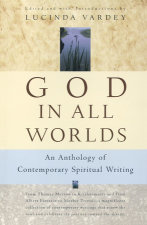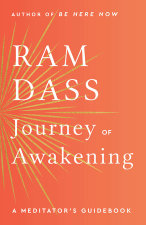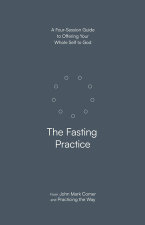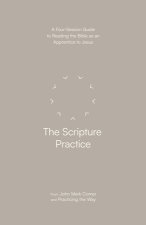Excerpt
From The Four Spiritual Laws of Prosperity

The Four Spiritual Laws of Prosperity by Edwene Gaines
Hardcover
•
CHAPTER 1
MASTERING MONEY
We as a human race have managed to build the internal combustion engine, eradicate polio, and make TV dinners you can heat in just minutes in the microwave. But we have not yet learned one of the most important things of all: how to form a healthy attitude toward money. We have to learn to be masters of our money, and not let it be the master of us. We must realize that the power to bring about real and positive change in this world is not in gold bullion, stocks, or bonds. Instead, the power is within us, as children of God, at the level of our spirituality.
Money is a means to an end, not the end itself. You cannot eat money, and it cannot keep you warm or cuddle you at night. Simply having money is not the goal. The goal is to use it to do whatever your heart leads you to do, and to do that which fulfills your divine purpose.
Many people who attend my workshops struggle with conflicting issues of morality and money. Perhaps you do, too. Perhaps you've been brought up to believe that money is evil. Perhaps you were taught the myth of noble poverty--that good people don't dream about wealth and prosperity, because doing so is greedy. As a result, part of you chooses to remain poor, and your life feels constrained and unfulfilled. You may have a sense that your dreams will never be achieved, and you live with the fear that life is passing you by.
Then perhaps another part of you--the part that caused you to pick up this book--believes that God wants more for you, that it's not God's will for you to endlessly struggle from paycheck to paycheck. In your heart you know that God loves you and wants the best for you. You sense that God has a special plan for you, and that if only you had the financial means, you could be out in the world, doing God's work and making a positive difference in the lives of other people, as well as fully making the most of this precious life that God has blessed you with.
A lot of us are torn between these two sides of ourselves because of the contradictory messages we've gotten our whole lives concerning spirituality and money. It's no wonder that when it comes to our finances, so many people feel conflicted and confused.
LEARNING TO ACCEPT OUR DESIRES
Many people want something--a house, a car, a new pair of shoes--but feel that they can't afford it. So they feel virtuous when they let themselves off the hook by saying, "Oh, I don't really want that thing. And anyway, I shouldn't be so materialistic."
Contrary to popular belief, God doesn't love a martyr. I should know; I played one for many years. Denying our material desires is not what God wants us to do. What we could choose to do instead is grow, develop our courage and faith, and stand up and say without guilt or hesitation, "This is what I want!"
If you desire something, and then you deny that you desire it, that's cowardice and spiritual laziness. And what's more, it's a lie.
God wants us to do more, to have more, to play big. God doesn't want us to deny our desires. After all, God put those desires in us, and we must celebrate them! Life is not about struggling, and being unhappy, and then dying. It is about enjoying and appreciating everything life has to offer. Through joy, we glorify God.
These ideas may be new to you. They often are to the people who attend my seminars, and those people often have lots of questions. Let me pose some of the most common questions and share my ideas about them.
"WHAT IS MONEY, ANYWAY?"
There is a lot written about what money is. Some scholars say it is "deferred service." Some say it is energy. Some believe that money is a spiritual symbol of invisible spiritual substance. Spiritual substance is what the mystics call the invisible body of God out of which all things are created--your clothes, your jewelry, your shoes, and the chair you are sitting in. It's all created out of one invisible substance called the body of God.
Money is an energy system we are using right now, which I believe will one day disappear. Money will no longer be necessary. Because, as Charles Fillmore, the cofounder of the Unity Church, says, "We shall serve for the joy of serving." And when we do, everything that we need and want will flow to us. So we won't need money.
But money is not going to disappear until we have mastered it, until we know that there is really no power in it, that it's here as an item to serve us, and that we don't have to earn it, or struggle for it, or do anything we don't want to do to get money. We certainly don't have to work a job we hate for it.
I believe that God is not way high up, way far away. I believe God is within us. I believe God is a part of everything we see and do, no matter how mundane. And what is more mundane than money? We touch it and handle it every day, in so many big and small different ways. You carry it with you. Every single piece of our money, down to the lowly penny, has a prayer on it: In God we trust.
"IS IT GREEDY TO DESIRE MATERIAL GOODS?"
Being rich doesn't mean you're greedy or bad. Still, when we think of accumulating wealth, many of us think of Ebenezer Scrooge, counting his coins in a cold, unlit room, and we don't want to be like that. We may instinctively dislike and distrust people when we feel that they want everything for themselves, and nothing for anyone else.
But this need not be the case. Let's take as an example Oprah Winfrey, who has far, far more money than any one person could ever need or possibly spend. If great wealth is an indicator of greed, then she must be one of the greediest people on the planet. But do we think that Oprah is greedy and materialistic because she lives in lavish mansions? Of course not! We're too busy paying rapt attention to how she went to South Africa to work with AIDS orphans. We admire her for her genuine care for other people and for her giving and generous spirit.
Greed is when you say, "I want this, and I don't want you to have it." It's not greedy to say, "I want lots, and I want you to have lots, too." If you believe that there is no end to God's abundance, then everyone should have all that they want, and then more.
Money is like love: The more you give away, the more you have. Love is a limitless resource, and so is money, and both were created by God to enrich our lives and allow us to live fully, joyfully, and completely. And you're going to discover the truth of the law of compensation, that you cannot outgive God. Emerson said that: You cannot outgive God. And he was absolutely correct.
"WHAT ABOUT THE SCRIPTURAL PASSAGES THAT PREACH AGAINST MATERIALISM?"
I get this question a lot, especially regarding the passage from the Book of Mark that states that it is easier for a camel to pass through the eye of the needle than it is for a rich man to enter the gates of heaven.
There are a lot of different interpretations of this Scripture. One is that there was an entry gate into Jerusalem called "The Eye of the Needle" because it was so small. Camels that came along with large cargo had to be unloaded so that the camel could get through and then be reloaded on the other side. If this is the eye of the needle the Scripture is referring to-- and we do not know this conclusively--then it is merely more difficult (but not impossible) for a richly loaded camel to pass through.
I believe that sometimes you have to be willing to give up the good to receive the greater good. At some point, as we gain more and more, we realize our material possessions are not that which is truly making us happy, and we can move beyond them to another spiritual level. At that point, we unload our camels and proceed without the cargo. When we do, we are the master of the material goods, not the other way around. We do not need our material things, and we reach a place of happily letting go. You have made spiritual progress when you can have your things or not, and be happy regardless.
"If we would only give, just once, the same amount of reflection to what we want to get out of life that we give to the question of what to do with a two-week vacation, we would be startled at our false standards and the aimless procession of our busy days."
--Dorothy Canfield Fisher
I think it's interesting that there are so very many scriptural references to prosperity and yet people tend to latch on to the ones that seem to suggest the nobility of poverty. But the Bible is full of promises of prosperity and abundance--far more than admonitions that suggest the virtue of doing without.
The danger of money comes when we forget what it's there for. When it begins to cloud the parts of our lives that are much more important, such as the personal relationships we have with the people we love, or our personal relationship with God.
That's what happened to me when, at one point in my life, I married a very wealthy man. I forgot some basic truths. I forgot that money is valuable in what it can allow us to do, be, and enjoy, and instead mistook money as being valuable in and of itself.
I had come into great prosperity, but I forgot why I was on this planet. I got so wrapped up in the money and the beautiful material things I owned that I let go of the spiritual world and kind of drowned in all the luxury. My life became stale and stagnant.
Over time, the riches caused me to depart from my spiritual pathway. I lost my appreciation for the small things. And at some point the lavish house in the posh district of town came to feel like a prison. The wealth became a burden.
There is a story in the Bible of a rich young ruler who went to Jesus and asked, "What must I do to have eternal life?" and Jesus said, "Sell everything you own, give the money to the poor, and come follow me."
I finally had to admit to myself that perhaps I had entered the marriage for the wrong reasons, and the relationship ended. I left that expensive house full of beautiful furniture, leaving everything behind except the clothes on my back and some things I could put in my car. As I drove away, I felt like the rich young ruler in that I had to leave behind all my worldly goods. That was what I needed in that moment because it forced me to get back to my true nature and calling.
The mistake I think people make, however, is that they think they should always be forfeiting their material goods. But I don't believe that I--or you, or anyone--need to live a lifetime of desperation or poverty. In that moment, however, it was what I needed as a wake-up call and to keep my life from going any farther down the wrong track, away from my sense of spirituality, and what I knew to be true and important.
Once again, the issue is whether you are the master of your money, or if your money and worldly objects are the master of you. There are times in your life when you are using money as a tool to do the work you need to do on this Earth. At other times in your life, you might start getting mesmerized by the glitter of the gold, and momentarily forget what's really important to you. At those times, your money is mastering you.
"ISN'T POVERTY A VIRTUE?"
People tend to think this. But, I ask, if poverty is so great, why is a fundamental goal of the major religions to eradicate it?
I was raised in a fundamentalist faith, and I have read and reread the Bible all my life. And nowhere did I read, "Thou shalt learn to do without, to be and have less than you could, to be less than God sent you to be." Instead it says, "It is your Father's good pleasure to give you the kingdom," and by "kingdom," I believe Jesus meant not just the kingdom of heaven but also the joy of a life richly led right here on Earth.
During a period of terrible poverty, I went and got a red letter Bible (a Bible in which everything Jesus said was printed in red). Everything Jesus said was so positive. He urged us to ask for what we want, and to not be afraid. The stories he told were success stories, about people triumphing over incredible odds, and my thought was, I believe my loving God wants more for me in life than just a miserable existence where I don't know how I'm going to put food on the table.
Nobody wants to live in poverty. I've been there, and it's a terrible place to be. It's awful to wonder how you're going to pay the light bill or to suspect that someone might be coming to repossess your car. There's just nothing fun about it, and God wants us to have fun.
How do you live the life you're meant to live? You live real close to God. You acknowledge that you are a child of God, you're made in the image and likeness of the Most High, you're a spiritual being, and it is the Father's good pleasure to give you the kingdom.
You are rich with unlimited possibility. If you don't believe that, then you are spiritually poor, and will be living in constant physical poverty. Only when you genuinely believe that you are blessed with unlimited possibility can prosperity come into your life.
"WASN'T JESUS POOR?"
This is simply not true; he did not live a life of poverty. Jesus did not carry money with him, but everything he needed was provided for him in abundance. He stayed in good homes and ate the best food.
According to Scripture, Jesus had a seamless garment. Just think of the clothes you are wearing today and how many seams they have. Can you imagine the hours of labor that must go into making a seamless garment, and what it must have been worth? At the crucifixion, the centurions cast lots to see who would get that seamless garment.
"ARE WE DRAINING OUR NATURAL RESOURCES BY CONSUMING SO MUCH?"
Copyright © 2005 by Edwene Gaines
EDWENE GAINES overcame poverty to live a lifestyle of wealth. She has been an ordained Unity minister for the past 25 years and gives prosperity workshops throughout the United States, speaking as often as 250 times a year. She resides in Alabama.
